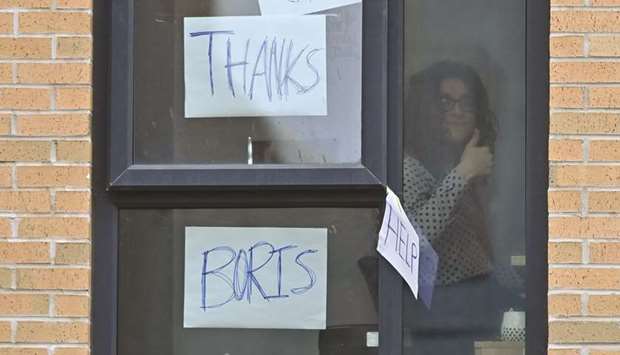Nearly 2mn people in northeast England face being fined if they mix with other households indoors after lockdown restrictions were tightened in the region.
Matt Hancock, the health secretary, said social mixing in restaurants was behind a rise in coronavirus cases in seven north-east council areas.
From tomorrow people will be prohibited from meeting in public venues such restaurants, theatres and cinemas in Durham, Gateshead, Newcastle, Northumberland, North Tyneside, South Tyneside and Sunderland.
Previously, people in these areas were only advised not to meet others indoors.
Hancock said the infection rate in the affected areas had risen above 100 cases per 100,000 people, double England’s average, and that it had “continued to rise sharply” despite a 10pm hospitality curfew and other measures introduced 10 days ago.
He told the Commons yesterday: “We do not take these steps lightly but we must take them and take them now because we know that swift action is more likely to being the virus under control and the quicker we can get this virus under control the quicker we will restore the freedoms we all enjoy in the north-east and beyond.”
The department for health and social care said a funding package would be in place to support the areas affected and that details would be announced in due course.
It said people in support bubbles could continue to meet in any setting and that parents would still be able to form “childcare bubbles” with another household to share caring responsibilities “as long as they are consistent”.
It came as other large parts of England prepared for further restrictions within days as the number of cases and hospital admissions continued to rise.
Extra measures for Liverpool, including a possible shutdown of restaurants are expected to be announced this week after its cases doubled in six days.
The city’s seven-day infection rate was 242 cases per 100,000 people in the week to September 24 – almost five times the average in England.
In Bolton, which previously had the highest rate, the infection rate is 212 per 100,000 people.
Joe Anderson, the mayor of Liverpool, said new infections in the city were doubling every six days and had reached 1,254 cases in the past week, up from 50 a week in August and 14 a week in July.
About 8,000 schoolchildren in the city – more than one in 10 – and at least 350 teachers and staff were self-isolating, he added.
One source suggested the measures could go further than closing the hospitality industry and were expected before tomorrow. “Whatever shock therapy they think Liverpool needs, it may not stop at bars and restaurants. I would be looking at the next 24 hours rather than later,” said one senior figure.
Matt Ashton, Liverpool’s director of public health, said the city was in a “very difficult position”.
The rise in cases had led to “sharp increases” in Covid hospital admissions, and “increases in deaths are likely to follow”, he said.
The increase in cases spans all age groups, including over-65s.

A student gestures at the window of the Birley Halls student accommodation, for students at Manchester Metropolitan University, in Manchester, yesterday, as many students live in a temporary lockdown in a bid to reduce the spread of the novel coronavirus on the campus.
